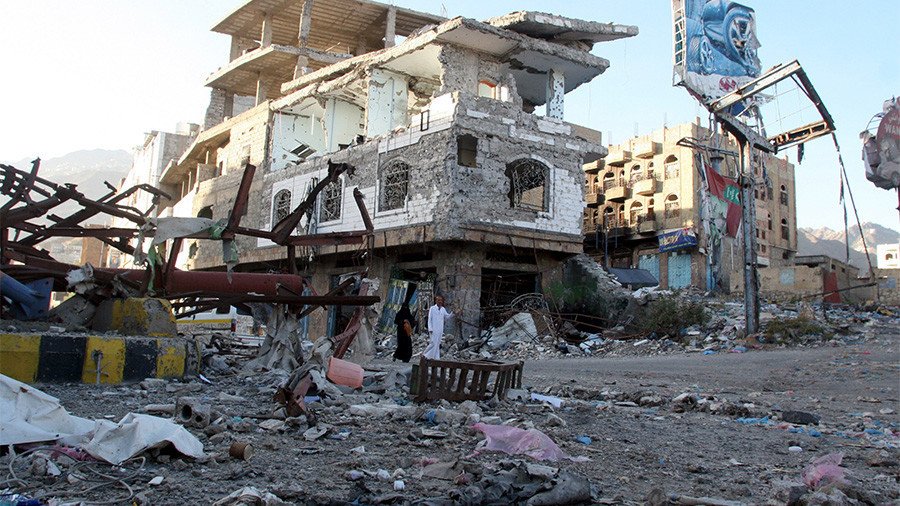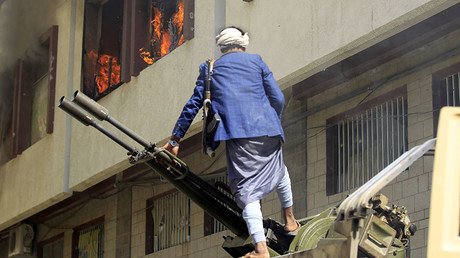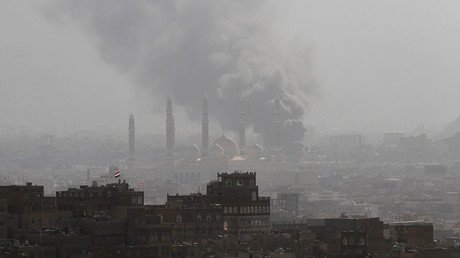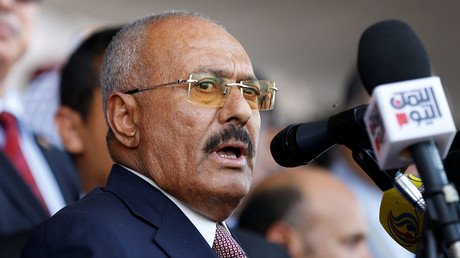‘War in Yemen isn’t over by a long shot, despite Houthi claims of ending crisis’

Houthi tanks are patrolling the empty streets of the Yemeni capital, as the rebels announced the death of ex-President Saleh and the takeover of Sanaa, saying it’s the “end of the crisis.” But can the embattled nation breathe a sigh of relief?
The Houthis announced Monday they had gained control over Sanaa and all positions of the rival fighters after killing ex-Yemeni leader Ali Abdullah Saleh who earlier realigned with the Saudis, breaking an uneasy alliance with the Houthis.
Saleh “was still capable of building bridges with the Saudi coalition, he was able to keep communications open and to actually negotiate humanitarian aid to get through to the Yemenis,” Catherine Shakdam, a director of programs at Shafaqna Institute of Middle Eastern Studies in London, told RT.
“There is nothing holding back the Saudi coalition” now, Shakdam warns, given the death of the ex-Yemeni leader. The former president tried to unite “against Saudi aggression” and “tried to secure political unity,” but fell victim to “a betrayal,” Shakdam said.
Saleh urged the coalition forces to “stop their aggression, lift the siege, open the airports and allow food aid and the saving of the wounded.” A military operation, led by the Sunni Arab coalition with Riyadh in the lead, pushed Yemen into a major humanitarian disaster, driving some 20 million people in need of urgent aid. More than 11,000 civilians are feared to have fallen victim to the conflict, according to the UN. While Riyadh greeted Saleh’s announcement, the Houthis called it “sedition” and “coup against our alliance and partnership,” as Saleh’s forces had allied with the rebels in a battle against the coalition.
Meanwhile, the Yemeni president, Abd-Rabbu Mansour Hadi, urged Yemenis to “rise against” the Houthis, ordering a massive offensive on the rebel forces in Sanaa and promising an amnesty to those who break with the group.
The Yemeni crisis isn’t over, as the Houthi’s claim, “not even by a long shot,” Shakdam said. The situation may spill into “an actual war now, where tribes will want to seek revenge,” Shakdam cautioned, adding it became “very vindictive and very personal.”
“Anything remotely resembling a political solution” has become hard to reach.
Death of Ali Abdullah #Saleh opens way to new wave of recrimination & revenge in #Yemen (Op-Ed by @OborneTweets) https://t.co/a0T7mllw05
— RT (@RT_com) December 4, 2017
The Houthis “are holding a religious line that might scare a lot of people who would like to see a republic in Yemen,” she believes, adding that the group “somehow justifies the Saudi anger” towards the country. And “whatever motivation [to avoid it] was encapsulated by Saleh, and it’s now gone,” Shakdam said. The situation may result in “a catastrophe,” she said, as Yemen is now open “to the likes of Al-Qaeda and those Wahhabi militia that have been in Syria and Iraq.”
Security and political analyst Omar Nashabe also echoed concerns that Yemen might be facing more bloodshed in the future, as the Saudis will perhaps push for more aggression and destruction. “This time was a drastic failure” when Saleh decided to switch sides in the conflict and “create a conspiracy” against the Houthis, Nashabe told RT.
READ MORE: Anti-Saudi alliance in Yemen splitting as ex-President Saleh makes overtures to Riyadh
Riyadh and its allies are trying to create coalitions with local forces by “financial pressure” and “promises for the future,” he adds. However, “these corruption elements didn’t work, because people of Yemen after so many years of Saudi bombardment are not ready to sit and talk with the Saudis as if nothing happened.”














